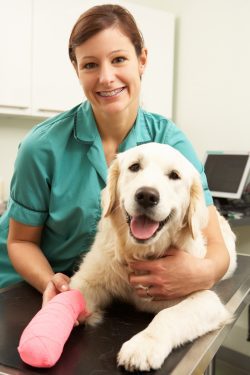Here Are Expert Strategies And Support From Animal Hospitals In Greer SC To Address Pet Obesity
Pet obesity has become a growing concern, with a significant number of pets worldwide being overweight or obese. Veterinary hospitals play a crucial role in recognizing and addressing this issue by offering strategies and support to help pets achieve and maintain a healthy weight. Veterinarians utilize a multifaceted approach to address obesity in pets, and remain at the forefront of providing strategies and support to combat this prevalent issue. The work collaboratively with pet owners to help their furry companions achieve and maintain a healthy weight, leading to improved overall health and longevity. This post outlines five effective strategies that Animal Hospitals in Greer SC utilize to tackle pet obesity.
Nutritional Counseling
We provide expert nutritional counseling to pet owners as a cornerstone of combating pet obesity. Our veterinary nutritionists assess pets for specific dietary needs while considering factors such as age, breed, activity level, and underlying health conditions. They create customized diet plans that promote weight loss while ensuring optimal nutrition. You receive guidance on portion control, the selection of high-quality pet food, and the importance of balanced diets during nutritional counseling sessions. We recommend specialized weight management diets that are lower in calories and higher in essential nutrients.
Exercise Plans
Regular exercise is crucial for managing pet obesity, and veterinary hospitals play a vital role in developing tailored exercise plans for pets. Our veterinarians assess your pets to gauge fitness levels and design exercise regimens that match their abilities and specific needs. These plans take into account factors such as age, breed, and any underlying health conditions that may affect the type and intensity of exercise. We guide pet owners on incorporating daily physical activity into their pets’ routine.
Regular Weigh-Ins and Monitoring
We emphasize the importance of regular weigh-ins and monitoring to track how your pets progress in their weight management journey. We weigh and assess pet for body condition score (BCS) to evaluate their weight status accurately during veterinary visits. This information helps our veterinarians in Greer to determine if they need to make adjustments to the diet or exercise plan. We guide pet owners on how to monitor their pets’ weight at home and offer tips on using scales and observing body shape and muscle tone.
Behavioral Modification
Established animal clinics use behavioral modification techniques to address underlying factors contributing to the obesity. These techniques focus on modifying eating behaviors, reducing overeating, and addressing emotional factors that may lead to excessive food consumption. Our animal nutritionists work closely with you to identify triggers and implement strategies to promote healthier eating habits. They may recommend portion control methods, such as using measured food bowls or automatic feeders. They also provide guidance on feeding schedules and the avoidance of free-feeding, which can lead to uncontrolled calorie intake.
Continued Education and Resources
We provide continued education and resources to empower pet owners in our efforts to combat obesity in pets. We have knowledgeable veterinarians who offer informative materials, such as brochures, handouts, and online resources. The health education cover topics such as healthy eating habits, exercise guidelines, and weight management tips. You can access these resources at any of our animal clinics or through our websites. Also, we conduct educational workshops or seminars where owners can learn from veterinary professionals about the importance of weight management and the potential health risks associated with obesity.




